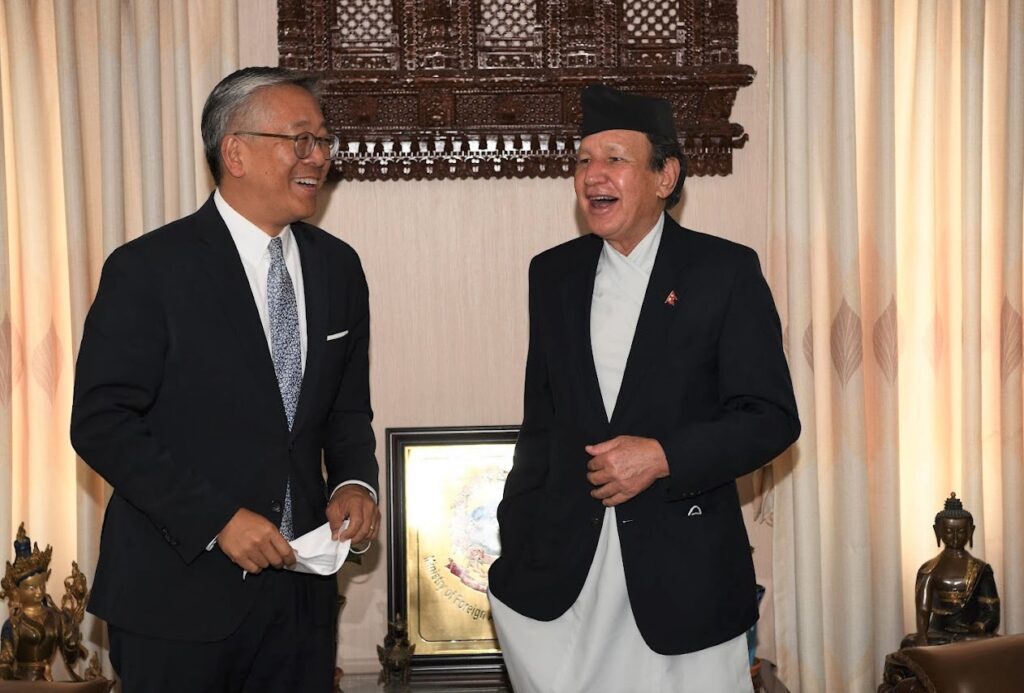Foreign Minister Narayan Khadka with US Assistant Secretary of State for South and Central Asia, Donald Lu in Kathmandu.
By Nirmal P. Acharya
At a time, when US-China relations seem to be at a tense standoff, Nepal chose to stay neutral by rejecting SPP and showed that it doesn’t choose sides. On July 29, Foreign Minister Narayan Khadka announced that the Ministry of Foreign Affairs had sent a letter to the US government to formally notify them to not move ahead on the SPP.
Most recently, the world’s focus has been on the Taiwan Strait, carefully watching how China will react to the Taiwan visit of US House Speaker Nancy Pelosi who reached there on 2 August amidst the Chinese warnings. This moment could be a turning point in the world landscape and on the eve of this turning point, Nepal has made the right decision to reject the SPP.
Pelosi’s Taiwan visit has escalated tension between China and the US. The US is playing the Taiwan card, which is not tolerable for China at any cost. The Chinese military has already said, it will not sit idly by and let evil prevail. Surely, Pelosi’s Taiwan trip this time will compel China for shifting from its longstanding strategic passivity to strategic initiative in US relations.
In its relations with the US and China, how Nepal should anchor its policy balance depends on objective factors. Nepal and China are interdependent by mountains and rivers and share a common border of more than 1,300 kilometers. China is the world’s largest industrial power, and its infrastructure capacity far exceeds that of other countries. While the total straight line distance between Nepal and the US is about 12,388 kilometers away.
The US is certainly a great empire, but it is also an ageing empire. The industry is hollowed out; there is no high-speed rail, airports and roads are in tatters; the pandemic has killed more than a million people; the security is not as good as Nepal’s and horrific shooting incidents are very common. In the event of a war between China and the US, even if we are subjectively determined to side with the US out of our attachment to the old empire, objective conditions do not permit it. It is not in our national interest to take sides.
If you look at China and the US with a simple attitude, you will feel that China is closer. China advocates a “community with a shared future for mankind”, while the US adheres to the “America First” principle. In the past, the US has caused untold suffering to other countries out of foreign wars, as the US thrives on war and can’t live without it. Looking at Syria and Afghanistan, we are reminded that we must take care of Nepal and strive for a future of peace, tranquility and development for Nepal.
The more I study the US, the more I feel that Marx’s analysis of capitalism makes more sense and Lenin’s revelations of imperialism are more far-sighted. At the time of writing this article, China and the US are in a tense confrontation in the Taiwan Strait. I wonder if the result is consistent with Mao’s early judgment that “US imperialism is a paper tiger”?
Reproduced from People’s Review




